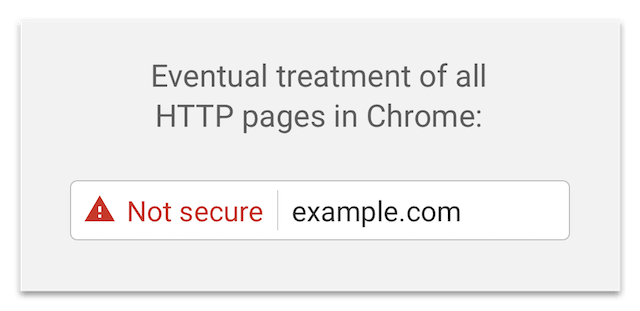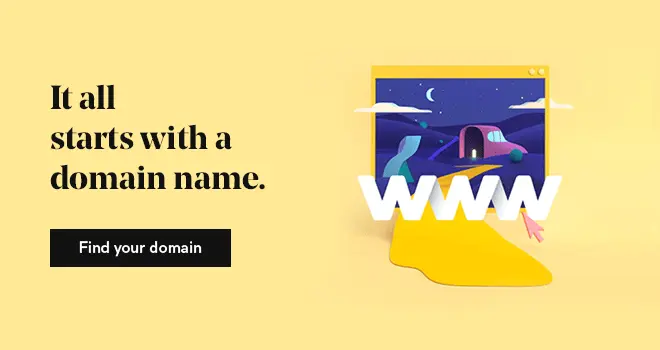In today's digital world, protecting your website and your visitor's sensitive information is not only crucial. It is ethical and in most countries, it is a legal requirement. As a website owner, it is your job to make sure that your website’s security and excellent. One of the best ways to achieve this is by using SSL certificates.
This comprehensive guide will explain everything you need to know about SSL certificates. You will learn about different types of SSL certificates, their validation levels, and finding the perfect one for your business. So, let's dive right in.
What is an SSL certificate?
SSL certificates, or Secure Sockets Layer, are a security protocol that encrypts the data transmitted between a user's browser and a web server. The certificate is a digital document that verifies the identity of a website and its' owners, ensuring that the data exchanged remains secure. It's similar to a digital ID card, displaying a padlock icon in the address bar and turning the HTTP into HTTPS, indicating that the site is secure.
Why do you need an SSL certificate?
A “not secure” sign at the top of a website can be devastating to the owners and dangerous to the users. An SSL certificate solves that problem. Here are a few reasons why you might need an SSL:
- Security: It protects sensitive information such as login details, credit card numbers, and personal data from hackers and identity thieves.
- Trust: SSL certificates build trust with users. When they can see the padlock icon and HTTPS in the address bar, this signifies a secure connection.
- SEO: Search engines, like Google, prioritize secure websites in search results, giving SSL-secured sites a potential boost in rankings.

SSL certificates types:
SSL certificates come in various flavors to suit different needs. Here, we will discuss the three main SSL Certificates Types:
- Single Domain SSL Certificate
- Wild Card SSL Certificate
- Multi-Domain SSL Certificate
Single domain SSL certificate
A single-domain SSL certificate protects one specific domain name. For example, if you purchase a single-domain certificate for www.example.com, it will only secure that domain and not its subdomains (e.g., blog.example.com). This type of certificate is ideal for small businesses and blogs with a single domain.
Wild card SSL certificate
A wildcard SSL certificate secures a single domain and an unlimited number of its subdomains. Using our previous example, a wildcard certificate for *.example.com will cover www.example.com, blog.example.com, shop.example.com, and any other subdomain you create. Wildcard certificates are perfect for businesses that operate multiple subdomains under a primary domain.
Multi-domain SSL certificate
A multi-domain SSL certificate, AKA SAN certificate (Subject Alternative Name) or UCC (Unified Communications Certificate), helps you to secure multiple domain names and subdomains under a single certificate. The multi-domain certificate is great for larger organizations, e-commerce businesses, or companies with multiple websites.
From GoDaddy, you get one SAN Certificate for multiple domains. Our basic multi-domain SAN SSL Certificate secures 5 websites (a primary domain plus 4 additional websites) with 2048-bit encryption, the strongest on the market.
SSL certificate validation levels
SSL certificates come with different levels of validation, depending on the amount of information verified by the Certificate Authority (CA). The validation levels are:
Domain validated (DV) SSL certificates
A Domain Validated SSL certificate (DV) provides the most basic level of validation. The CA verifies that the applicant has control over the domain name through a simple verification process, such as an email or DNS record check. DV SSL certificates are quick to obtain and cost-effective, making them a popular choice for small websites and blogs. However, they don't offer any information about the organization behind the website.
Organization validated OV SSL certificates

An Organization Validated (OV) SSL certificate requires a more thorough vetting process. The CA verifies the organization's existence, its physical location, and domain ownership. OV certificates display the organization name in the certificate details, providing a higher level of trust compared to DV certificates. They are suitable for businesses and organizations that want to show visitors that they have been authenticated.
Extended validation SSL certificates (EV)
Extended Validation (EV) SSL certificates offer the highest level of validation. The CA performs extensive background checks on the organization, including verifying its legal existence, operational status, and physical location. EV certificates display the company name in the address bar alongside a padlock icon, offering the highest level of trust for visitors. They are ideal for e-commerce websites, banks, and other businesses handling sensitive information.
SSL certificate types: finding the right fit for your business
Knowing the different SSL certificate types, their validation levels, and their benefits is crucial for website owners. Whether you're securing a small blog or a large e-commerce site, SSL certificates play a vital role in protecting your visitors' sensitive information and building trust with your audience.
Choosing the right SSL certificate depends on your specific needs and the level of trust you want to establish with your visitors. With GoDaddy's website builder and the GoDaddy E-store, you can easily purchase and manage SSL certificates, ensuring a secure and trustworthy online presence for your business.
Now that you're well-versed in SSL certificates, it's time to take action! Secure your site, boost your search engine rankings, and give your visitors peace of mind with the right SSL certificate for your website.
Frequently Asked Questions (FAQ) about SSL certificates:

Here are some answers to your frequently asked questions:
What are the differences between DV, OV, and EV SSL certificates?
The main differences between DV, OV, and EV SSL certificates (Extended Validation certificates) are the level of validation and the information they display to visitors. DV SSL certificates offer basic domain validation SSL certificates, OV SSL certificates (organization validation SSL certificate) provide organization validation, and EV certificates deliver the highest level of validation with the company name displayed in the address bar.
What is a self-signed SSL certificate?
A self-signed SSL certificate is one created and signed by the website owner, rather than a trusted Certificate Authority. While they provide encryption, they don't offer the same level of trust as CA-issued certificates and web browsers like google chrome often display security warnings when encountering self-signed certificates. They should be used with caution and are typically not recommended for public-facing websites.

How do I purchase an SSL certificate for my website?
GoDaddy, a renowned Certificate Authority, offers various SSL Certificates Types to cater to different website owners' needs. Our selection includes single-domain SSL certificates, wildcard SSL certificates for unlimited subdomains, and multi-domain SSL certificates, which can secure different domains under one certificate. GoDaddy simplifies the process of choosing, purchasing, and completing the validation process for DV, OV, and EV SSL certificates. Our platform helps e-commerce businesses and other organizations ensure a secure site for processing sensitive information, such as credit card details and personal data.
How do I install an SSL certificate on my website?
Installing an SSL certificate typically involves the following steps:
- Generate a Certificate Signing Request (CSR) on your web server.
- Submit the CSR to your Certificate Authority during the purchase process.
- Download the issued SSL certificate from the CA.
- Install the SSL certificate on your web server, following the instructions provided by your hosting provider or server software documentation.
If you're using GoDaddy's website builder or the GoDaddy E-store, the process is even easier, as SSL certificates are automatically installed and managed for you.
It is a hassle-free SSL certificate installation and management experience, even for those new to web server configurations. When using GoDaddy's website builder or the GoDaddy E-store, SSL certificates are automatically installed and managed, providing a padlock icon in the address bar and HTTPS for secure browsing. We offer step-by-step instructions for installing SSL certificates on various web servers, and our customer support is always ready to assist with any queries.
What are the requirements for obtaining an SSL certificate?
Understanding the importance of SSL certificates and the various types available, such as wildcard SSL certificates, multi-domain SSL certificates, and single-domain SSL certificates, is very important for website owners. With GoDaddy, you can protect your visitors' sensitive information, establish trust, and enhance your search engine rankings (SEO).
GoDaddy offers a wide selection of SSL certificates, including DV, OV, and EV SSL certificates. If you are installing one for the first time, let our exceptional customer support to assist you throughout the purchase, installation, and management process.
Embrace the power of SSL/TLS certificates. Provide a secure, professional online presence that keeps hackers at bay and instills confidence in your visitors.
With GoDaddy's website builder, the GoDaddy E-store, and SSL certificates, you can effortlessly create a secure website that displays the padlock icon in the address bar and encrypts data transferred between your site and your visitors.
Don't wait any longer—secure your site today with GoDaddy's comprehensive SSL certificate offerings.









